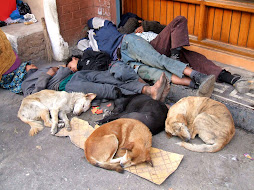Kathmandu, January 27, 2011 – Animal Nepal today honoured Mr Indra Tuladhar from Bungamati Itha Udyog for producing ‘clean and green’ bricks using Chinese technology. The animal welfare organization urges other brick producers to follow the example and eliminate environmental pollution as well as the exploitation of working children and equines. “The industry has the technology and the resources to stop the production of ‘blood bricks’; all it needs is the right kind of motivation,” said Krishna Singh, programme manager at Animal Nepal.
Animal Nepal’s gesture is supported by Dutch Party for the Animals member Martin Schoenmakers. Together with Animal Nepal Volunteer Director Lucia de Vries he offered a certificate and gifts to the clean bricks producer.
The Bungamati brick factory in 2019 introduced Chinese automated brick making machinery. Instead of being seasonal the factory now produces bricks all year round and no longer employs migrant workers, children and donkeys. The bricks are transported by electric carts. Although the process is not yet completely environmentally friendly, there is a great reduction in emissions. Bungamati Itha Udyog is one of the three factories in Nepal using this technology.
Enterpreneur Tuladhar was motivated to clean up his factory when learning about the new technology. He says the brick industry suffers from labour problems, animal abuse and environmental pollution. The contracted workers at the improved kiln earn a fixed salary and no longer face hazardous work conditions.
In order to help make buyers make the rights choices, a network of NGOs active in environmental protection, children’s rights and animal welfare, including Animal Nepal, have joined hands to promote a responsible brick-making industry. They are introducing a certification system that will provide brick factories with a red, orange or green label.
Animal Nepal urges the brick industry to clean up its act and stop the production of ‘blood bricks’. “Brick kilns are the number one polluters in the Valley and employ countless children and donkeys to do the dirty work. Both issues can be addressed by introducing new technologies such as Vertical Shaft Brick Kilns or automated machinery,” says Krishna Singh.







